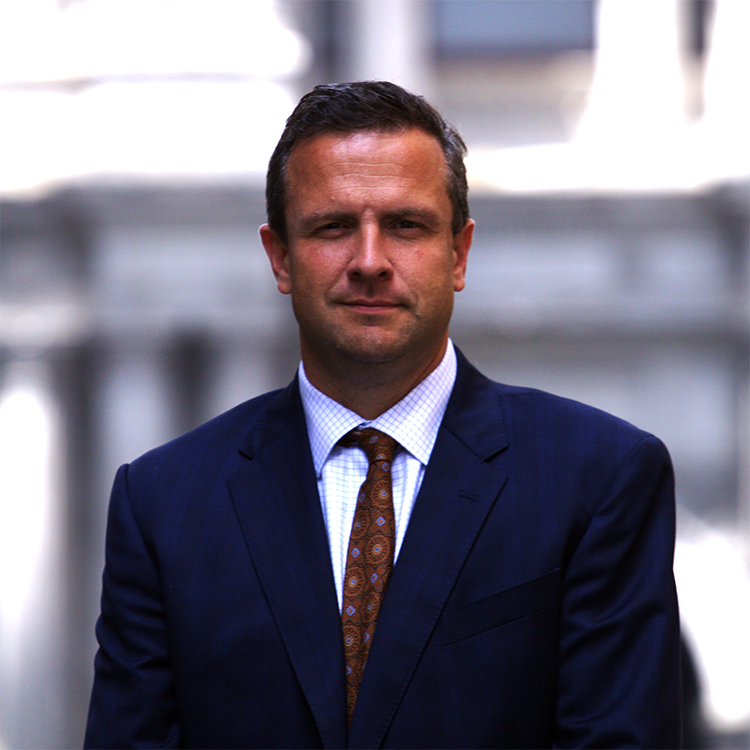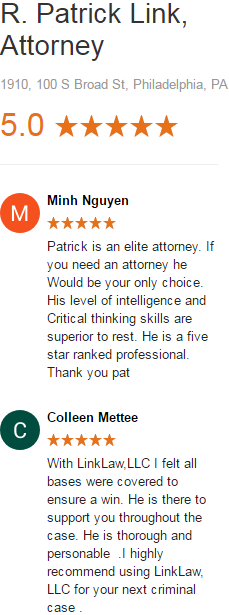FREQUENTLY ASKED QUESTIONS
Do I need a lawyer for a preliminary hearing?
A: A preliminary hearing is also sometimes referred to as a probable cause hearing. At a prelim, the Commonwealth has to convince a judge that a crime occurred and that it is “more likely than not” the defendant who committed it. This is a much relaxed standard of proof than the “beyond a reasonable doubt” standard that the Commonwealth is held to at trial. If the Commonwealth can meet this standard at the preliminary hearing with respect to each charge, the case is then “held for court” and the case will move forward to trial in the Court of Common Pleas.
The preliminary hearing is important for several reasons and it’s important that you have an experienced lawyer represent you at every stage of a criminal prosecution. First, a good lawyer is oftentimes able to convince a judge that the Commonwealth has not met its burden and that some or all of the charges should be dismissed, or be graded as misdemeanors as opposed to felonies. In that case, the potential penalties a client is facing could be drastically reduced.
Preliminary hearings can also be an effective tool for setting up a reasonable doubt at trial or in a motion to suppress evidence. All preliminary hearing witnesses are under oath and recorded by a stenographer. It is important to effectively cross examine witnesses at a prelim so that they can be “locked in” to certain answers at trial, and in the case of police officer witnesses, at a motion to suppress. In other words, if the witnesses try to get creative at another hearing sometime in the future, they can be confronted with their prior inconsistent statements and their veracity can be called into question.
Preliminary hearings are also important for purposes of bail motions. If a lawyer can begin to expose cracks in the Commonwealth’s case at the preliminary hearing, a judge (in addition to dismissing some charges) will often be more inclined to grant a motion to decrease bail after the hearing.
Call LinkLaw, LLC at 267-858-4774 to discuss your case and prepare for your preliminary hearing.
Why is my case going before a Grand Jury?
A: Within the past six months, the District Attorney’s Office has increasingly utilized the Grand Jury process over preliminary hearings to move a case through to the Court of Common Pleas. These efforts are in response to concerns raised in the media that the DA’s Office has not been doing enough to deal with the problem of witness intimidation. Currently, anytime the DA’s Office alleges that witness intimidation has occurred in a particular case, or is likely to occur, they can then skip the preliminary hearing phase and present their case in secret (without a defendant or his/her lawyer being present) to a grand jury. If the Grand Jury determines that a crime occurred and that it more likely than not that the defendant committed it, then it will return an indictment and the defendant will be ordered to stand trial in the Court of Common Pleas. While the DA’s Office purports that this process is used on a limited basis to combat witness intimidation, there are concerns that it is being abused to avoid the adversarial process at a critical stage of a criminal prosecution.
If the District Attorney’s Office decides to utilize the Grand Jury process in your case, then it is imperative that you hire an experienced criminal attorney to tip the scales of justice back in your favour.
Call LinkLaw, LLC at 267-858-4774 for a free consultation about your case.
What is a Motion to Quash?
A: A motion to quash can be filed after a preliminary hearing or after an indictment has been returned by a Grand Jury. It is essentially an appeal of a judge’s rulings at a preliminary hearing or of a Grand Jury’s findings that a prima facie case exists on one or all of the charges, meaning the Commonwealth failed to meet its burden of establishing that a crime occurred and more likely than not it was the defendant who committed it. A good criminal defense attorney will cite relevant case law to support their arguments and gain dismissal of additional charges. If, the judge grants a motion on all charges, that of course is the end of the case unless there is an appeal to the Superior Court. If the judge grants a motion to quash with respect to some of the charges, the remainder would proceed to trial.
If your case has been held for court after a preliminary hearing or you have been indicted, call LinkLaw, LLC for a free consultation as to the possibility of a Motion to Quash and/or available defenses for trial.
How can I get bail reduced?
A: After an arrest is made, bail is set by a bail commissioner. Normally, a preliminary hearing is scheduled within two weeks of an arrest on a felony case. A motion to reduce bail can be filed almost immediately in the Court of Common Pleas. If you decide to go this route and are not successful, you will not be able to ask the judge at the preliminary hearing for a reduction of bail because that lower court judge will not have jurisdiction. However, if a bail motion is not brought in Common Pleas court you will effectively have “two bites at the apple”- one with the municipal court judge at the preliminary hearing, and if necessary a subsequent hearing in Common Pleas Court. Of course, if a bail motion is denied and there are any “changed circumstances” (i.e., continuances by the Commonwealth) with respect to the case at a later date, a bail motion can be re-litigated.
If bail is excessively high, and previous bail motions have been unsuccessful, your attorney can file a 600e motion after six months spent in custody. Under the law, if a defendant has been in custody for six months after the date of his arrest and there are no delays attributable to the defense, then he/she should be eligible for release on nominal bail.
Contact LinkLaw, LLC for a free consultation on all aspects of your case, including bail.
When can I file a Motion to Suppress Evidence?
A: Many people think that just because the police have overwhelming evidence of guilt, there is no shot at winning the case. However, whenever the police obtain evidence (fingerprints, DNA, confessions, contraband such as guns or drugs, blood or breath test results, etc.) in a criminal case, you may be able to suppress (keep out) that evidence on the grounds that it was obtained in violation of your constitutional rights under state and/or federal law. In most cases when the judge agrees that the challenged evidence should be suppressed the prosecution will be severely handicapped in their ability to proceed against you at trial and the case will end.
There are limitless scenarios where your rights may have been violated- scenarios that inexperienced attorneys often overlook. If the police infringe on your rights at any point of their investigation, all subsequent evidence obtained from you may be deemed to be “fruit of the poisonous tree”. However, if these constitutional violations are not brought to the attention of the court and properly litigated, no one is going tell you. Your case will proceed on the conveyor belt of the criminal justice system and your chances of avoiding a conviction and the devastating consequences that follow are sharply increased.
You need to find an attorney who will never give an inch and aggressively protect your rights against overzealous police and prosecutors. Motions to Suppress often involve instances where a police officer’s credibility is at stake. That is because police officers know the law and therefore know when they are violating someone’s constitutional rights. As a result, it is not uncommon for police officers to fudge the truth surrounding the circumstances of their encounter with a citizen. It is imperative that you have an attorney who is not afraid to challenge the veracity of a police officer’s testimony.
Call LinkLaw, LLC for a free consultation regarding your case, including potential constitutional issues that may arise in the context of a motion to suppress evidence.








